The KEBS corruption scandal has deepened with new leaked documents exposing how officials allegedly exploited tenders to steal millions. This is part two of the shocking revelations following yesterday’s report, where whistleblowers laid bare how KEBS bosses looted Ksh 420 million through fake travel claims, forged documents, and double payments.
Now, more details are emerging, showing how senior officials used fraudulent legal fees, questionable procurement contracts, and even ghost workers to siphon money.
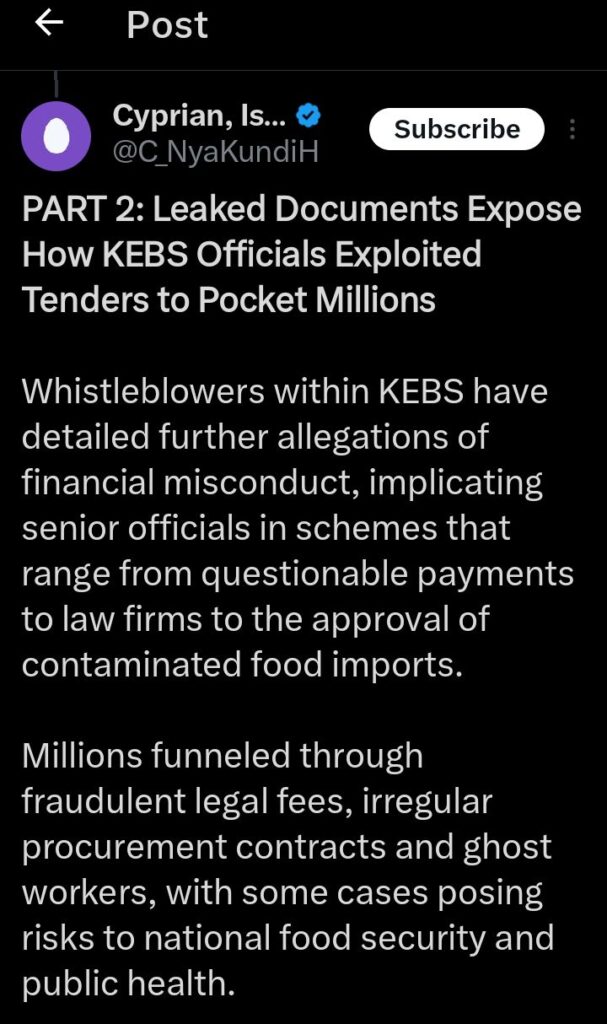
Cyprian Is Nyakundi has been relentless in exposing these schemes, highlighting how KEBS has become a cesspool of corruption while those responsible continue operating with impunity.
One of the most brazen schemes involves payments to unqualified law firms. KEBS Managing Director Esther Ngari is accused of authorizing Ksh 30 million to Nyaanga & Mugisha Advocates for consultancy services that were never provided.
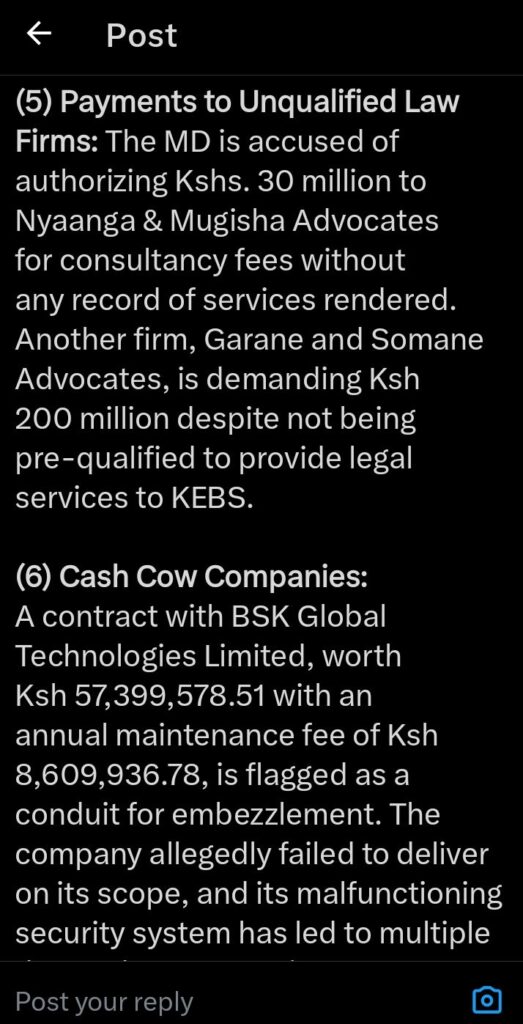
Another firm, Garane and Somane Advocates, is demanding Ksh 200 million despite not being pre-qualified to offer legal services to KEBS.
These payments raise questions about whether these firms were used as conduits to loot public funds under the guise of legal fees. Nyakundi has been vocal about how such shady deals continue unchecked while government agencies pretend to fight corruption.
Procurement fraud is another major avenue through which KEBS officials have allegedly enriched themselves. A contract with BSK Global Technologies Limited, worth Ksh 57.4 million, has been flagged as a suspicious deal.
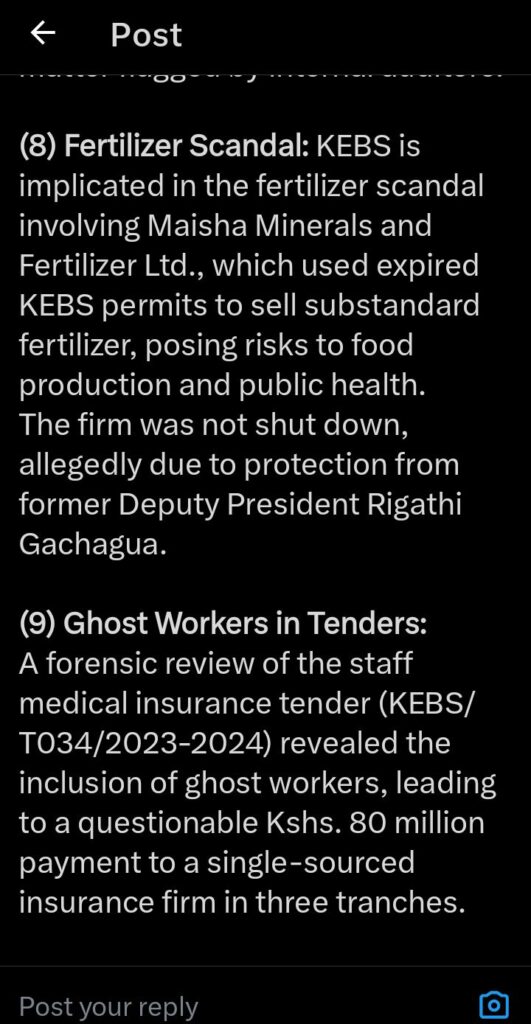
The company was contracted to provide a security system with an annual maintenance fee of Ksh 8.6 million, but it allegedly failed to deliver as required.
Despite its non-performance, KEBS has continued to make payments, and the faulty system has led to multiple demand notes, costing taxpayers millions. Nyakundi has questioned why such companies keep getting contracts while ordinary Kenyans struggle with the high cost of living.
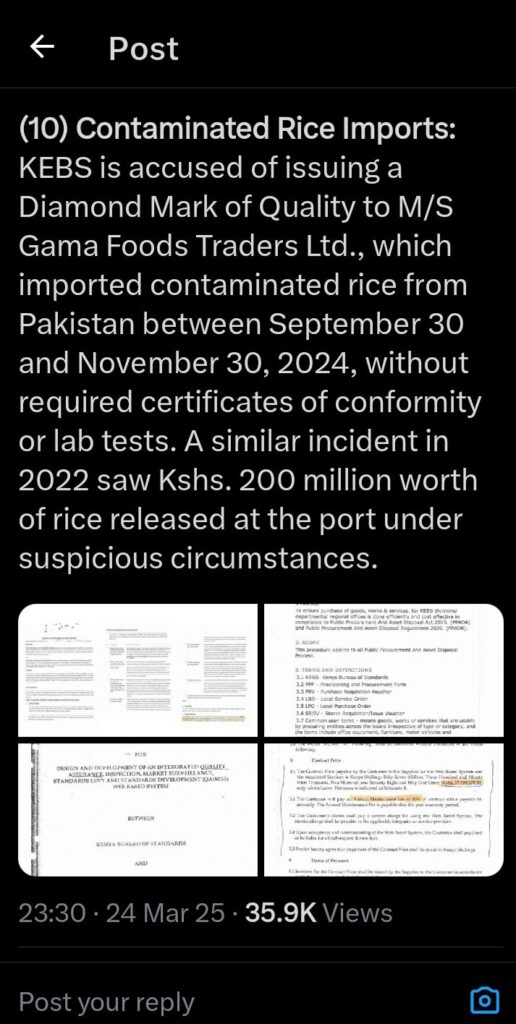
KEBS has also been accused of defying a directive from the National Treasury prohibiting state corporations from financing ministry operations.
Internal auditors have flagged continued payments from KEBS to the Ministry of Investment, Trade, and Industry despite the ban. This raises concerns about how funds meant for standards regulation are being misused for political or personal gain.
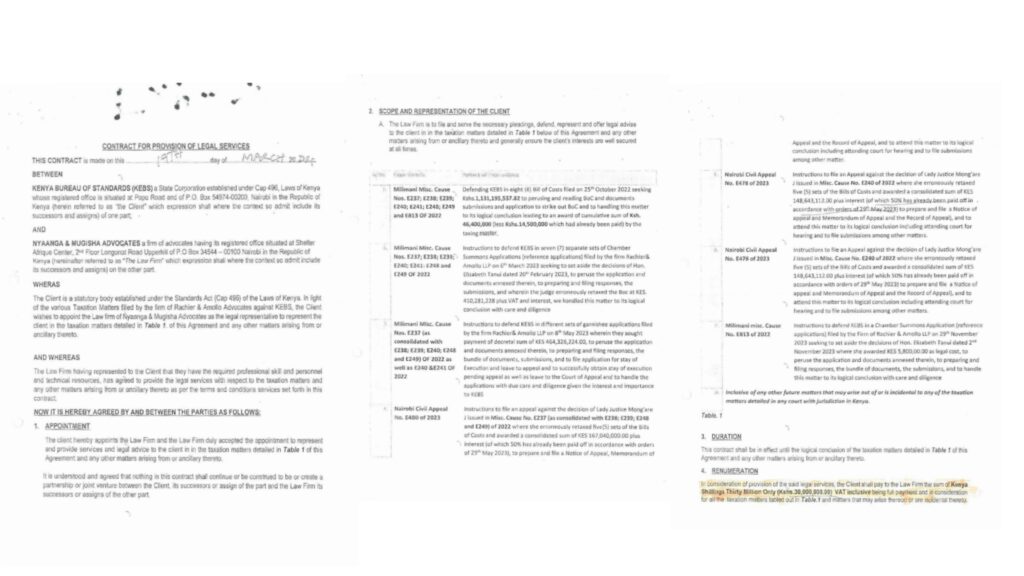
Nyakundi has pointed out that such reckless spending is part of a larger problem where government institutions prioritize corruption over service delivery.
The fertilizer scandal is another major issue linked to KEBS. The agency is accused of allowing Maisha Minerals and Fertilizer Ltd. to sell substandard fertilizer using expired KEBS permits.
This fertilizer, which failed to meet quality standards, was sold to unsuspecting farmers, potentially affecting food production. Shockingly, the company was never shut down, allegedly due to protection from former Deputy President Rigathi Gachagua.
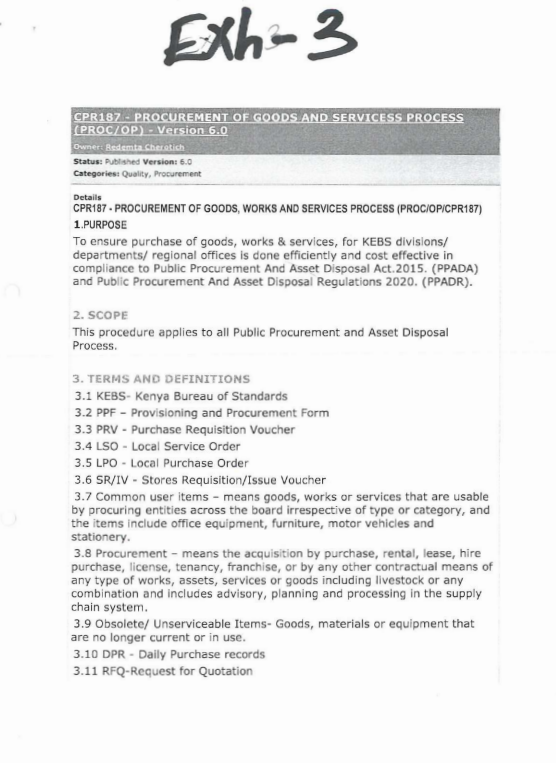
This revelation fuels speculation that high-ranking politicians are shielding corrupt cartels at KEBS.
Ghost workers have also been discovered in a KEBS medical insurance tender worth Ksh 80 million. A forensic review of the tender (KEBS/T034/2023-2024) exposed how fictitious employees were added to inflate costs, allowing a single-sourced insurance firm to receive payments in three suspicious tranches.
Nyakundi has slammed KEBS for operating like a criminal enterprise, where public funds are looted while Kenyans receive substandard services.
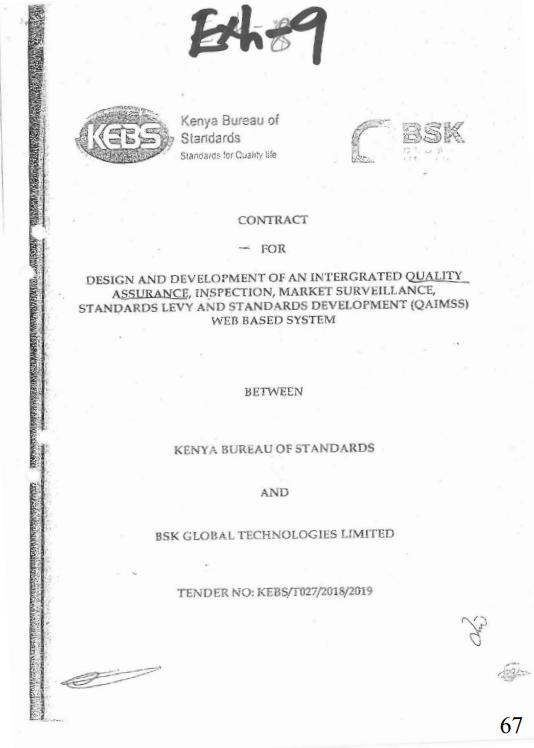
The most alarming revelation is KEBS’ role in allowing contaminated food imports into the country. Leaked documents show that KEBS awarded a Diamond Mark of Quality to M/S Gama Foods Traders Ltd., which imported contaminated rice from Pakistan between September and November 2024.
The rice was released into the market despite lacking certificates of conformity or lab tests. This is not the first time such a scandal has occurred back in 2022, Ksh 200 million worth of rice was suspiciously cleared at the port despite failing safety tests.
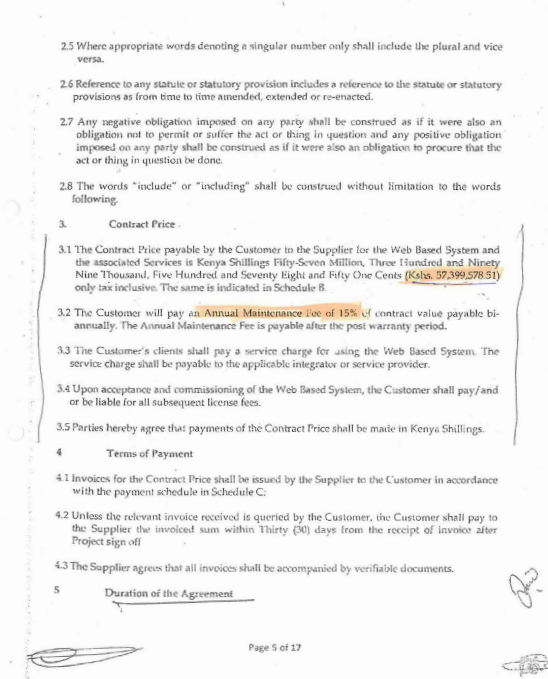
These cases expose how KEBS officials prioritize bribes over public health.Nyakundi has called for immediate action against KEBS officials involved in these scandals, arguing that the agency is no longer serving its intended purpose.
With millions lost in fraudulent contracts, ghost workers, and illegal tenders, the credibility of KEBS is in shambles. The big question remains will those responsible be held accountable, or will this just be another case of corruption swept under the rug?







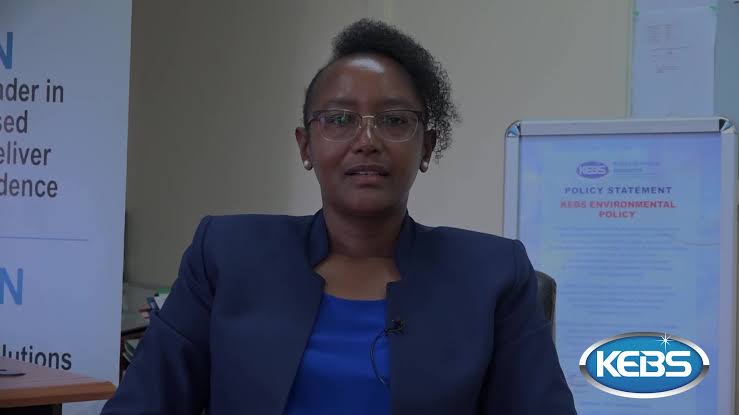













Add Comment